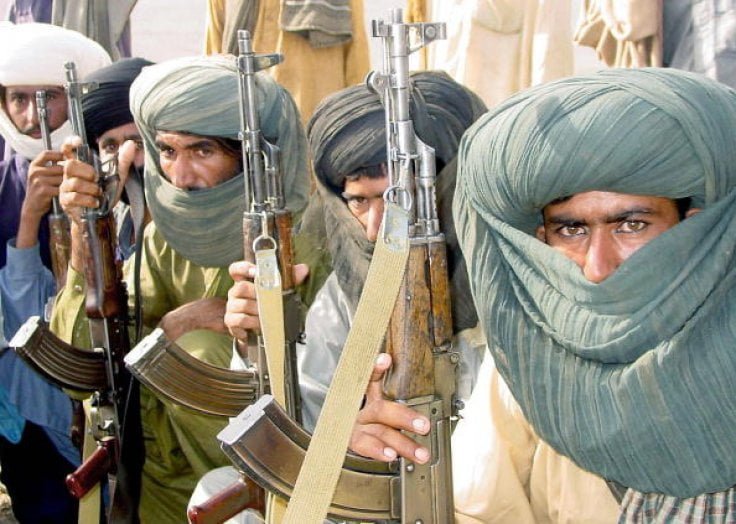Waqar Ahmadani
The state’s determination to neutralize the threats posed by militant and terrorist groups is understandable, but it is crucial that this drive does not inadvertently alienate the civilian population in the process. In Balochistan, a province already grappling with complex issues, the situation is growing increasingly unstable. Years of misguided policies have contributed to the current security challenges in the region, and it is clear that forceful measures like lawfare and police brutality will only exacerbate the problem rather than resolve it.
The security situation in Balochistan is rapidly deteriorating, and while the state’s concerns about militant outfits are legitimate, they must be balanced with a recognition of the root causes of discontent in the province. Years of neglect and policies that have failed to address the grievances of the Baloch people have led to this current state of unrest. The use of heavy-handed tactics, including indiscriminate crackdowns and violations of human rights, will only serve to fuel the anger and resentment that already exists among the people.
In his speech on March 23, President Asif Ali Zardari reminded the nation of the founding principles of Pakistan—equality, justice, and the rule of law. These values must guide the state’s approach, especially when addressing regions like Balochistan, where the relationship between the people and the state is already fraught with tension. Instead of relying solely on repressive measures, there is a need to address the deeper issues of governance, political representation, and economic inequality that have long been sources of dissatisfaction.
A recent example of the state’s flawed approach to Balochistan is the arrest of Dr. Mahrang Baloch, the chief organizer of the Baloch Yakjehti Committee (BYC), along with 150 other individuals. The charges brought against them are severe, including accusations of terrorism, incitement to rebellion, and promoting racial hatred, among others. These actions are disproportionate and will likely have the opposite effect of what the state hopes to achieve. Instead of quelling dissent, such heavy-handed measures will only galvanize the BYC and its supporters, creating further divisions between the state and the people of Balochistan.
The Baloch Yakjehti Committee has gained significant traction in the province because of its message of non-violence and peaceful protest. Unlike many other movements that have resorted to violence, the BYC’s commitment to peaceful demonstration has resonated with ordinary Baloch people, especially women, who have traditionally been marginalized in the region. This is a significant development that should have been encouraged and supported, as it represents the Baloch people’s desire for change without resorting to violence.
Instead, the state has chosen to dismiss the movement, branding its leadership with grave accusations that will only deepen the mistrust between the Baloch people and the government. By labeling the BYC’s leadership as terrorists and inciting rebellion, the state is essentially reinforcing the perception that no matter how peaceful or lawful their actions may be, the Baloch people will always be treated as enemies of the state.
From the Baloch perspective, these actions only confirm the long-standing belief that their voices and concerns are not valued by the state. The constant cycle of violence, repression, and disregard for the Baloch people’s grievances plays directly into the hands of those who seek to isolate Balochistan and its people from the rest of Pakistan. When ordinary civilians feel that their rights are ignored or trampled upon, they become more susceptible to extremist ideologies and separatist movements, which offer an alternative narrative to the state’s approach.
The state must recognize that the fight against militancy cannot be won solely through military or law enforcement means. It is equally essential to win the hearts and minds of the people. Ignoring or suppressing civilian protests, especially when they are peaceful in nature, will only deepen the divide between the state and the people. By resorting to forceful tactics, the government risks pushing away ordinary citizens who might otherwise be inclined to seek a more peaceful resolution to their grievances.
Pl subscribe to the YouTube channel of republicpolicy.com for quality content:
To effectively address the challenges in Balochistan, the state must adopt a more nuanced approach that balances security concerns with the need for political and social inclusion. The focus should be on addressing the underlying causes of unrest, such as economic disparity, political disenfranchisement, and human rights violations. Rather than resorting to punitive measures, the state should engage with political leaders, civil society groups, and grassroots movements to create an environment where dialogue, understanding, and peaceful negotiation are prioritized.
Additionally, the government must provide greater autonomy to provincial governments, allowing them to better address local issues and ensure that the needs of the Baloch people are met. Economic development in the region should be accelerated, with a particular focus on creating jobs, improving infrastructure, and providing social services. This will help alleviate some of the frustrations that have fueled militancy and unrest in the past.
It is also essential for the state to recognize the importance of women’s leadership in movements like the BYC. Their active participation in the struggle for Baloch rights is a sign of the growing demand for gender equality and political representation. The state should support these movements rather than suppress them, as they offer an opportunity for peaceful change and empowerment in a region that has long been marginalized.
In conclusion, the state must be cautious in its approach to Balochistan. While addressing the threat of militancy is important, it must not come at the cost of further alienating the civilian population. The recent actions against the Baloch Yakjehti Committee are a clear example of how the state’s heavy-handed tactics can backfire and create more problems than they solve. A more thoughtful and inclusive approach is needed—one that addresses the root causes of unrest, respects the rights of the people, and encourages peaceful dialogue. Only then can the state hope to build a more stable, unified Pakistan, where all regions, including Balochistan, can thrive together.
















